Welcome to one of the most active flamenco sites on the Internet. Guests can read most posts but if you want to participate click here to register.
This site is dedicated to the memory of Paco de Lucía, Ron Mitchell, Guy Williams, Linda Elvira, Philip John Lee, Craig Eros, Ben Woods, David Serva and Tom Blackshear who went ahead of us.
We receive 12,200 visitors a month from 200 countries and 1.7 million page impressions a year. To advertise on this site please contact us.
|

|
|
RE: modern vs traditional
|
You are logged in as Guest
|
|
Users viewing this topic: none
|
|
Login  | |
|

   
Miguel de Maria
Posts: 3532
Joined: Oct. 20 2003
From: Phoenix, AZ

|
 RE: modern vs traditional (in reply to ricecrackerphoto) RE: modern vs traditional (in reply to ricecrackerphoto)
|
|
|
I think I get what you mean. I have studied classical harmony but not jazz. So you're saying, for example, that a D7 functions as the dominant in the key of G but as a V of V in C. Same chord, but different function. Whether or not that chord was known in flamenco, say, it is now different and "jazzy" because of the way it is only now being used.
So, to extrapolate, Paco and his followers have added a whole new slew of "jazzy" language to flamenco, which changes it, even to the untutored ear, even if the chords are not new. Another example might be that although everyone already knew Am G F E Dm C Bb, that playing it as Am Dm G C F Bb E (for example) is using these chords in a new function and is thus "new sound" (well this is an old example right).
If that is what you are saying, I get it... to me it is new colors and shades, the same thing with new clothes. I can also see why modern flamenco is so appealing to the intellectual guitarist because there is so much detail and complexity in every step now. Pedro Cortes told me that he is constantly studying new harmonies and scales because it's essential to do so (like how I always drop names? :)).
I have to admit that bossa chord progressions stump me, though. I need to study them because I love them, especially when they have descending basslines with lots of tasty chords.
_____________________________
Connect with me on Facebook, all the cool kids are doing it.
https://www.facebook.com/migueldemariaZ
Arizona Wedding Music Guitar
|
|
|
|
REPORT THIS POST AS INAPPROPRIATE |
Date Nov. 4 2006 20:41:47
 |
|

   
Ricardo
Posts: 14801
Joined: Dec. 14 2004
From: Washington DC

|
 RE: modern vs traditional (in reply to Guest) RE: modern vs traditional (in reply to Guest)
|
|
|
quote:
and therefore has been an indirect influence on Paco.
Well I have no problem with indirect influence, in fact alot of that was what I had in the orginal post. Paco had influence of sound and style Brazillian/Jazz fusion, etc. More often than not what he used was the specific personal nuanes of the musician he worked with. For example Paco plays Mclaughlin things, but he is not thinking like a jazz player at all. He does not compose with the idea of harmony that McLaughlin has. He goes for a sound and explores with his fingers and ear, but jazz players know where one chord goes relative to another.
Paco's chord usage is about what his fingers like to do, the flamenco way, not the standard jazz style comping one would learn in Jazz school. Even in 1996 concert with trio he still plays the same way, not doing the voicings of chords Mc and Dimeola use. You think he is still nervous after all these years?
I too understand when someone describes a flamenco player as "jazzy" more or less what he means, but the orginal question Trad vs modern I felt was trying to get at more than the generalizations.
quote:
Rhythm is very important but if you took all the modern harmony(which comes directly or indirectly from jazz IMO) out of flamenco it would sound closer to the traditional.
You mean, leave the synchopation in and remove or simplfy the "jazz" harmonies of modern flamenco would result in more "traditional sounding" flamenco? Noway in my opinion. That is the whole thing I was getting at. Rhythm is WAY more important than that in defining modern flamenco. Play Escudero/Sabicas/R. Montoya music note for note, but throw in the synchopation/dynamics and it is gonna sound "jazzy" or at least modern to many.
G7/D-Db7b5-C. You keep giving the same ii-V-I with tritone sub, brazillian walk down move. I already admited it was a colorful substitute for the old school chromatics common in old school flamenco. And in my orginal post I sited this kind of thing as an exception related to Brazillian guitar. There are alot better candidates for trying to find the jazz mind at work in flamenco guitar. And normal trad flamenco uses often very interesting dissonance and chromatic voice leadings that have nada to do with jazz. But guys like Pedro Cortes read and write and study music and do fusions deliberately, as do many others that have caught the "Jazz" bug. Alot of guys in flamenco, w/out schooling, searching for the "jazz" sound or cool harmonies, have made up their own thing, their own "grips" on the fingerboard. Trying to anazlyze from the point of view of jazz style "changes" is pointless, just because it sounds "jazzy".
How would you describe the function of this chord in A phrygian (related to flamenco) and where in jazz/Brazillian have you seen it used that it could have come from to influence modern flamenco? One of paco's favorites. You think Mclaughlin taught him? I dont think so.
Bar 3rd fret, G-Db-F-C-D-G, then resolve to A, any way you want, scale down, arp, Bb-A or Bb7-A, etc.
I honestly believe flamenco guitar, modern or traditional has it's OWN vocabulary, perhaps inspired by the sounds of Spanish classical, American Jazz, fusion, Brazillian, Argentina, whatever, but ultimately FUNCTIONING it's own way in the context of flamenco. Fingering of chords is a big part of the style, more important than harmonic purpose as learned in theory books or learned for the sake of comping to a chart.
Ricardo
PS, thinking about ii-V-I, I realize when accomp. cante how the "cambios" often have chromatic walk downs in traditional accompaniment. For example, in A phrygian the voice gives B in the scale and the guitar typically plays E7, then resolves to something else like Bb-A, or C7-F. And when doing C7-F, no one ever put the F# in the bass on the way down before 1980 you think? I will hunt when I get a chance. 
|
|
|
|
REPORT THIS POST AS INAPPROPRIATE |
Date Nov. 4 2006 22:40:37
 |
|

  
Stoney
Posts: 132
Joined: Nov. 6 2009

|
 RE: modern vs traditional (in reply to ricecrackerphoto) RE: modern vs traditional (in reply to ricecrackerphoto)
|
|
|
I was thinking of starting a post like this one, maybe with a different slant but since the search function seems to be working today I'll just add my 2 cents on to this thread.
What the hell is Jazzy? I remember when I first started to play guitar oh so many years ago, playing folk and Rock stuff we all shunned "Jazz Chords."
I have since come to realize that they really don't exist at all. What does exist is Jazz voicings of chords. As do Flamenco voicings of chords.
A lot of folk music doesn't move much beyond your Major and Minor chords with a few 7th and dominant 7th chords thrown in for coloring. Obviously that's limited.
All the possible combinations of notes and chords were all figured out long ago by folks like Beethoven and Mozart and Bach. These chord extensions (adding the 7th, 9th, 11th, 13th etc. etc. to the Major and minor chords) and exploring the harmonic possiblities these chords imply would be the big difference between Modern and tradtional Flamenco.
Aside from that, what is new in Modern Flamenco (to my humble ear and IMHO) are the chord voicings that have a Jazzy sound - (for want of a better way to describe them) Whereas years ago a Flamenco guitarist might have played the same G minor chord as any other guitarist, we now have voicings that give a new and different feel to Modern Flamenco. Great. I particularly love the dissonant voicings that mix fretted notes with open strings.
My favorite guitarists (aside from Paco de Lucia and Tomatito) are more traditional. Yet they take traditional to the limit. Victor Monge Serranito and Pepe Romero for example definitley play(ed) with an awesome intensity. They pushed the traditional to the limit.
Someone on this thread mentioned that modern isn't necessarily better. I couldn't agree more. There is just as much (if not more) BAD modern Flamenco out there as there is BAD or Boring traditional stuff.
Obviously PDL and Tomatito keep the Tradition while expanding the form. I've heard many players (mostly semi-professional American players - some flogging their own CDs, some not) who stood on the shoulders of giants without ever really learning traditional Falsetas nor mastering more than the prefered toques (Bulerias, Solea, and Tangos are big ones with the cheaters)
Then they fill in their shows with Rumbas Rumbas Rumbas, Sevillanas, and any other simple toque. Also, they love to do another players piece "note for note." It's Flamenco for god's sake, not top 40.
Meanwhile, whole toques are going out of style. What the hell is wrong with playing Malaguenas - Verdiales - Tientos - Zambra Mora - Alegrias in La etc. etc?
Finally, a fallasy - Flamencos have been improvising FOREVER - just not in the lead guitar style of "Entre dos Aguas." They improvise falsettas that are in compas.
I might suck as a Flamenco guitarist (and at this point on my $80 classical there's little doubt that I do) and my level these days may be just slightly better than Ottmar Liebert, but I can hardly remember a single falsetta. I have to rely almost 100% on improvisation. Luckily I have enough background and understanding of theory to just let it fly, play off the cuff and invent an improvised falsetta. 50% of the time I blow it, have to go back and re-think my original idea, work it out until I get something I can keep which IS in compas.
In closing, I for one would rather hear someone play a loose and improvised Flameco piece in the traditional style than hear someone execute a Vicente Amigo piece note for note.
Stoney
PS. I read most of the posts on this thread. If I'm regurgitating points already made, my apologies.
|
|
|
|
REPORT THIS POST AS INAPPROPRIATE |
Date Dec. 4 2009 9:42:29
 |
|

   
BarkellWH
Posts: 3458
Joined: Jul. 12 2009
From: Washington, DC

|
 RE: modern vs traditional (in reply to Stoney) RE: modern vs traditional (in reply to Stoney)
|
|
|
I am glad you resurrected this thread from 2006, Stoney, because the question of "traditional" vs. "modern" is one that comes up all the time, both in terms of technique and preference. I appreciate the modern (however one describes it, "jazzy," "progressive," etc.) for what it is. And the old days, when a lone flamenco guitarist playing solo in front of an audience (a la Sabicas, Carlos Montoya, and others) probably would not cut it for today's audiences, particularly the younger set. It just wouldn't sell sufficient tickets in places like the Kennedy Center, or even the annual flamenco festival at Lisner Auditorium here in Washington, DC. I suspect most of younger people prefer the modern because they associate it with so-called "world music."
Nevertheless, I definitely prefer the traditional when I'm thinking and feeling "flamenco-ish." I particularly prefer a guitarist accompanying traditional cante. I strive to play much more in the vein of early Paco Cepero than I do any of today's headliners. There is a youtube video of a young Paco Cepero accompanying Turronero and Camaron de la Isla (sequentially) in a Buleria. They are at a table with a very young Paco de Lucia (with his back to the camera most of the time). It was filmed about 40 years ago, and, in my opinion, it is a wonderful example of what flamenco is all about. I don't have the link at hand, but if you type in the key words "Paco Cepero y Camaron de la Isla" you will be directed to a series of videos and can find it.
Cheers,
Bill
|
|
|
|
REPORT THIS POST AS INAPPROPRIATE |
Date Dec. 4 2009 12:15:31
 |
|

   
Ricardo
Posts: 14801
Joined: Dec. 14 2004
From: Washington DC

|
 RE: modern vs traditional (in reply to ricecrackerphoto) RE: modern vs traditional (in reply to ricecrackerphoto)
|
|
|
This topic always frustrates me too. I feel I have to write an essay every time just to be clear about where I am coming from on this issue. I am really tired of it now 3 years later. Now I simply say if you think modern flamenco is jazz, and that is why you don't go to any concert of it, then you probably don't understand either genre much at all. I don't feel a need anymore to educate folks on this. More so, I feel I am the one who gets educated by about the folks that have an opinion about it. For example:
Stoney: prefers to hear traditional style (what he percieves it as anyway) improvised then a note for note rendition of a "modern" flamenco piece. And Pepe Romero was pushing the boundaries of traditional flamenco? Well it says a lot to me about how and what you listen to interms of guitar. Nothing at all wrong with it, just revealing.
Ron: Your list of guitarists that have old and modern elements you actually like, well, they are all from only one school or style of playing. The Jerez school. And even family relatives  Not saying I disagree, it just reveals to me what your tastes have shifted to lately. Not saying I disagree, it just reveals to me what your tastes have shifted to lately.
And the Washingtonian who sees a problem with a solo guitarists filling a concert hall. Well even in the old days, and the same true today, the audience filling a concert hall for a solo player is an audience of CLASSICAL guitar aficionados. Not flamenco aficionados. Recently people seemed confused about an old record compilation that included both Segovia AND manitas, but the audience for solo guitar was more or less the same types. A modern player can't fill a hall because he has a "back up group". And the kennedy center? I think Paco de lucia is the only flamenco player who played there in years (concert hall I mean not millenium stage), and can do so because of international reputation. He could still fill it if he choose to play totally alone, old or new music would not make much difference...but he would have to play entre dos aguas.
And about Cepero? Another Jerezano, you could add him to Ron's list. Also Parrilla. Good tasty stuff, modern or trad is not really the issue, it is much more specific thing you guys are after interms of your tastes. I think that is a good thing, so long as you keep open ears to other styles or "schools". Same thing happens to the Diego fans, they get caught up in that personal style, as if just his style defines traditional flamenco.
And Mark says modern is not the enemy of the old school, and the two coexist just fine today. That says a lot to me about what HE understands about the history and evolution of flamenco guitar IN GENERAL.
Ricardo
_____________________________
CD's and transcriptions available here:
www.ricardomarlow.com
|
|
|
|
REPORT THIS POST AS INAPPROPRIATE |
Date Dec. 5 2009 8:51:38
 |
|

   
Andy Culpepper
Posts: 3023
Joined: Mar. 30 2009
From: NY, USA

|
 RE: modern vs traditional (in reply to ricecrackerphoto) RE: modern vs traditional (in reply to ricecrackerphoto)
|
|
|
It's true that everyone has their own idea of what Flamenco "is" or "should be". Especially non-Spaniards who are not connected to it as a living folk music every day of their lives, ie going to Peñas, juergas etc.
People get very confused by what they hear on commercial recordings that sound very experimental and modern and this causes some to retreat into a cave of "anything done after the 1960s is not flamenco".
For me, I have my own tastes, but I certainly don't feel I have the right to judge the "current state of flamenco".
The only way you can get a feel for what Flamenco, or "modern flamenco" is, is to go to Andalucia and observe the people there making their music in Peñas and juergas. Like it or not, Andalucians are the ones who define what Flamenco is, and the rest of us just have to follow their lead.
People get afraid that "real flamenco is dead" because of what they hear on commercial records. Believe me, it's not.
|
|
|
|
REPORT THIS POST AS INAPPROPRIATE |
Date Dec. 5 2009 9:12:11
 |
|

  
XXX
Posts: 4400
Joined: Apr. 14 2005

|
 RE: modern vs traditional (in reply to Ricardo) RE: modern vs traditional (in reply to Ricardo)
|
|
|
Fact is, this is one of the most productive threads on the foro. Really alot of good info. I would have wished you to investigate further if there is a "jazz function" of a chord or a progression, and a flamenco (modern/trad) function, and what exactly would be the function. I understand that part with the complete absence of a chart in flamenco. I only learned to play a dozen Jazz Standards in bossa rythm. But when i hear modern flamenco, nothing reminds me of Jazz.
deteresa, i think, as long as people have a feeling for it flamenco can happen anywhere on earth. If it can't, i guess 90% of the "flamencos" on this planet have chosen the wrong path... i mean, for some its their culture, and for some "only" flamenco, music, baile, ART. But its still FLAMENCO IMO. Even if its just a commercial record.
_____________________________
Фламенко
|
|
|
|
REPORT THIS POST AS INAPPROPRIATE |
Date Dec. 5 2009 9:38:15
 |
|

   
chupacabra
Posts: 6
Joined: Nov. 14 2009

|
 RE: modern vs traditional (in reply to ricecrackerphoto) RE: modern vs traditional (in reply to ricecrackerphoto)
|
|
|
Hola Amigos,
Interesting thoughts here. I am hesitant to weigh in on this topic, as it's so personal and largely based on taste, without any conclusive answers.
I played several styles before any flamenco, though now that I'm "here", I may be here for good! :) I played jazz for a very long time, so I do feel qualified to comment on that topic. The difficulty in grasping a new style goes both ways. Jazz and flamenco are sufficiently different that knowing one will not qualify you to play the other well. It might qualify you to fake it reasonably well. :) Flamenco chord structures are complex and idiosyncratic enough that they are hard for the newbie. Yet, among the most adventurous jazz chord players, their material would be equally hard to grasp, IMO. Multiple inversions of chords built from octatonic scales or quartal structures, anyone? Yeah, me either. ;)
IMNSHO, as someone who studied theory, to me the funniest thing is to hear people spell chords based on one of those chord generators... possibly technically accurate, but that read very much like translations done with Google.
While I was learning flamenco, I kept the styles very segregated, as many jazz chords sounded very strange there. Many still do. But as time has gone on, the ideas have begun to mesh more, and are simply "my vocabulary" rather than styles to be approved by the flamenco and jazz police. [Caveat - I'm still learning, I'm not at the level of Ricardo and Todd and those mavens!] As a result, my stuff will be viewed as crap by a strict traditionalist, and that's fine. My brain needs the stimulation of complexity. Yet at the same time, I love the more traditional stuff.. in a way it's like having something straight, no chaser, very powerful, like the darkest, best black coffee. To me, when you cut off one or the other, you just miss out on the huge delicious meal you could have had. Not to mention my other vice - a very strong passion for Brazilian music. :)
|
|
|
|
REPORT THIS POST AS INAPPROPRIATE |
Date Dec. 5 2009 9:42:31
 |
|

   
BarkellWH
Posts: 3458
Joined: Jul. 12 2009
From: Washington, DC

|
 RE: modern vs traditional (in reply to BarkellWH) RE: modern vs traditional (in reply to BarkellWH)
|
|
|
I wish to clarify my post about the the Kennedy Center audience for Carlos Montoya's concert not being classical guitar afficionados. In fact, they may well have been classical guitar afficionados, as am I, and as are many on this forum. Nevertheless, they were attending the concert to hear flamenco guitar. They were not conflating the two (a la Manitas de Plata and Andres Segovia!). They may not have known much about flamenco, but they were sophisticated enought to know they were attending a flamenco concert.
Cheers,
Bill
_____________________________
And the end of the fight is a tombstone white,
With the name of the late deceased,
And the epitaph drear, "A fool lies here,
Who tried to hustle the East."
--Rudyard Kipling
|
|
|
|
REPORT THIS POST AS INAPPROPRIATE |
Date Dec. 5 2009 9:44:44
 |
|

   
Ricardo
Posts: 14801
Joined: Dec. 14 2004
From: Washington DC

|
 RE: modern vs traditional (in reply to BarkellWH) RE: modern vs traditional (in reply to BarkellWH)
|
|
|
quote:
ORIGINAL: BarkellWH
This Washingtonion does not wish to belabor the point, but in 1979, I attended a concert in the Kennedy Center concert hall, in which Carlos Montoya performed solo the entire evening. One can say what one wishes about Carlos Montoya and his reputation among flamencos, but the concert hall was filled to capacity with an audience that was there to hear (at least what they perceived to be) flamenco guitar. They most definitely were not an audience of classical guitar afficionados.
Cheers,
Bill
That has to do with advertising, not his style of playing. He was well in with the classical guitar circle of concert goers. Same for people like Manitas and Pepe Romero. The insinuation that todays audience would not fill a hall (in USA) of solo flamenco guitar is conjecture, it depends on WHO is the person, not how they present themselves or group or not.
Also the idea that YOUNG PEOPLE prefer modern flamenco is not true either. In my experience, MOST people of all ages associate and prefer what they understand of flamenco to be what most of us think of as "traditional". In fact that is my whole frustration with this thread, that modern flamenco sounds like jazz, and only these young whipper snappers understand it. People generalizing all flamenco guitar post paco as "jazz" or implying they need a jazz group or whatever to give a concert, rather than simply trying to dig into the genre deeper and understand what makes it still "flamenco" though they dont' recognize it as the same. In my experience there are few who really appreciate modern flamenco guitar, or even know many names or recognize recordings of it. This forum and the split that occured which resulted in the "old school forum" creation is evidence too. THere should be way more folks tolerant of the modern players on a flamenco forum IMO.
The folks who focus all their time on Sabicas, Carlos, Diego del gastor etc, and think that constitutes all and only what good traditional flamenco guitar is, are usually the same ones that can't recognize Ramon Montoya in Tomatito's playing.
_____________________________
CD's and transcriptions available here:
www.ricardomarlow.com
|
|
|
|
REPORT THIS POST AS INAPPROPRIATE |
Date Dec. 5 2009 9:53:54
 |
|

   
Andy Culpepper
Posts: 3023
Joined: Mar. 30 2009
From: NY, USA

|
 RE: modern vs traditional (in reply to XXX) RE: modern vs traditional (in reply to XXX)
|
|
|
quote:
deteresa, i think, as long as people have a feeling for it flamenco can happen anywhere on earth. If it can't, i guess 90% of the "flamencos" on this planet have chosen the wrong path... i mean, for some its their culture, and for some "only" flamenco, music, baile, ART. But its still FLAMENCO IMO. Even if its just a commercial record.
_____________________________
You misunderstood me. I believe that Flamenco can happen anywhere on earth, obviously.
Syracuse, NY flamencos lemme hear ya say WHAT. Yo Dave!! 
But the point is, it's Spain that defines the standards. Every flamenco guitarist you listen to is either from Spain or heavily influenced by Spanish artists. That's just the way it is.
We're not allowed to redefine flamenco along our own preferences. If you just like Diego del Gastor, that's fine but don't go talking about how Flamenco doesn't exist anymore because he's dead.
Yeah I'm starting to get sick of this thread too 
|
|
|
|
REPORT THIS POST AS INAPPROPRIATE |
Date Dec. 5 2009 10:25:51
 |
|

  
XXX
Posts: 4400
Joined: Apr. 14 2005

|
 RE: modern vs traditional (in reply to Andy Culpepper) RE: modern vs traditional (in reply to Andy Culpepper)
|
|
|
In hope of not sickening you too much....
quote:
ORIGINAL: deteresa1
But the point is, it's Spain that defines the standards. Every flamenco guitarist you listen to is either from Spain or heavily influenced by Spanish artists.
(Spain, Andalucia, Gipsies... all different terms imo, but not that important here)
To me there is a huge difference between both sentences. Influenced? Of course. Spanish artists are the main input, the engine of this genre, but not because of their nationality, but because of their high understanding of the artform.
"We're not allowed to redefine flamenco along our own preferences."
My answer would be: it depends on what your preferences are. That itself again depends on your taste and knowledge. Thats what makes an artist flamenco or not in my eyes, and not his race, culture, nationality.
But again, that would depend on how you see it. If its a culture or an artform. If its culture, you need to live it and then yes, only people in spain could call themselves flamenco, and therefore define flamenco.
_____________________________
Фламенко
|
|
|
|
REPORT THIS POST AS INAPPROPRIATE |
Date Dec. 5 2009 10:41:48
 |
|

  
runner
Posts: 357
Joined: Dec. 5 2008
From: New Jersey USA

|
 RE: modern vs traditional (in reply to ricecrackerphoto) RE: modern vs traditional (in reply to ricecrackerphoto)
|
|
|
Ricardo, in your last post, you wrote,"In my experience, there are few who really appreciate modern flamenco guitar...... There should be way more folks tolerant of the modern players on a flamenco forum IMO."
Could you expand a little on this? My sense is that this Foro is almost completely dominated by, first, those whose interest in flamenco is overwhelmingly about guitar, and, second, whose interest is in those very modern players that you feel are not appreciated enough. If one compares the numbers of posts and posters on this Foro to those of the tiny handful of forums dealing with Old School, this Foro blows the rest out of the water, in terms of sheer numbers, and, I presume, appreciation of modern players.
runner
|
|
|
|
REPORT THIS POST AS INAPPROPRIATE |
Date Dec. 5 2009 11:10:23
 |
|

   
Andy Culpepper
Posts: 3023
Joined: Mar. 30 2009
From: NY, USA

|
 RE: modern vs traditional (in reply to ricecrackerphoto) RE: modern vs traditional (in reply to ricecrackerphoto)
|
|
|
Deniz,
You think I'm trying to tell you that you can't play Flamenco or be a Flamenco, but I'm not. That would be an incredible hypocrisy on my part.
But you have to give respect to the culture that created Flamenco. Weren't you the one that thought the word "cante" came from a German word? Give me a break.
Andalucia is a beautiful and totally unique place in the world. It's the place that created the music that I love, Flamenco. There's no debate about that. Andalucia has created the past, present, and future of Flamenco.
You can do whatever you want, and I think you play very good flamenco, but you didn't get to that point by copying your German buddies.
For me, my inspiration as an artist comes from the source. That's not to say that I'm not greatly influenced by Jason McGuire, and many others including you even. But these players all represent and draw influence from the source as well, that's how they gain authenticity.
|
|
|
|
REPORT THIS POST AS INAPPROPRIATE |
Date Dec. 5 2009 11:45:54
 |
|

   
mark indigo
Posts: 3625
Joined: Dec. 5 2007

|
 RE: modern vs traditional (in reply to el topo) RE: modern vs traditional (in reply to el topo)
|
|
|
quote:
Traditional Si Modern No
so which is:-
Moraíto, Pedro Bacan, Paco Cepero, Juan Habichuela, Pepe Habichuela...?
Paco de Lucía's first two solo albums, "Fabulosa Guitarra..." and "Fantasia Flamenca..."?
Manolo Sanlucar's "Recital Flamenco"...?
basically, where do you draw the lines between these two?
IMO any line you draw to separate the two is completely arbitrary and therefore meaningless
IMO there are too many exceptions and contradictions for any clear separation and/or division
For a tradition to exist it has to be handed on, and will evolve as it does so, that is the nature of any tradition, so therefore whatever is "modern" must be part of the "tradition" because otherwise what you are calling "tradition" is not a tradition, it is "historical"
|
|
|
|
REPORT THIS POST AS INAPPROPRIATE |
Date Dec. 6 2009 7:23:41
 |
|
 New Messages New Messages |
 No New Messages No New Messages |
 Hot Topic w/ New Messages Hot Topic w/ New Messages |
 Hot Topic w/o New Messages Hot Topic w/o New Messages |
 Locked w/ New Messages Locked w/ New Messages |
 Locked w/o New Messages Locked w/o New Messages |
|
 Post New Thread
Post New Thread
 Reply to Message
Reply to Message
 Post New Poll
Post New Poll
 Submit Vote
Submit Vote
 Delete My Own Post
Delete My Own Post
 Delete My Own Thread
Delete My Own Thread
 Rate Posts
Rate Posts
|
|
|
Forum Software powered by ASP Playground Advanced Edition 2.0.5
Copyright © 2000 - 2003 ASPPlayground.NET |
0.109375 secs.
|


 Printable Version
Printable Version





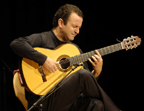


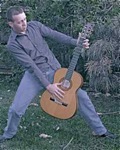
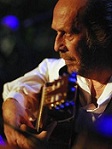
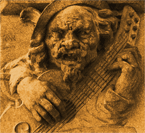
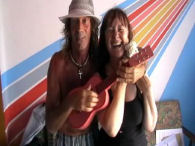
 Not saying I disagree, it just reveals to me what your tastes have shifted to lately.
Not saying I disagree, it just reveals to me what your tastes have shifted to lately. 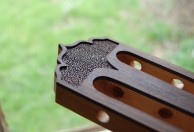
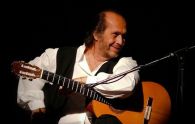




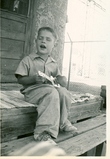
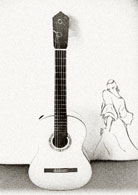
 New Messages
New Messages No New Messages
No New Messages Hot Topic w/ New Messages
Hot Topic w/ New Messages Hot Topic w/o New Messages
Hot Topic w/o New Messages Locked w/ New Messages
Locked w/ New Messages Locked w/o New Messages
Locked w/o New Messages Post New Thread
Post New Thread